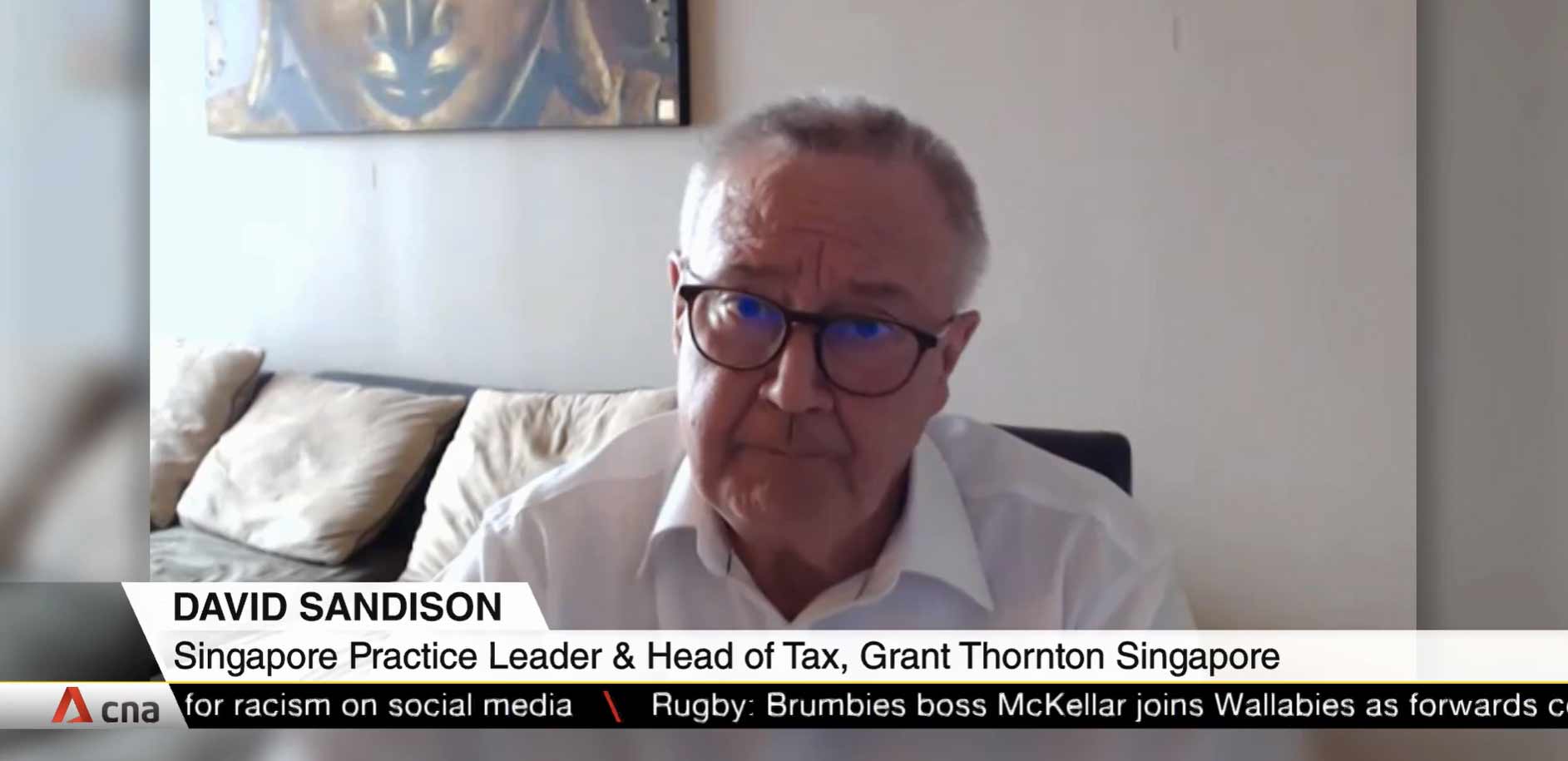-
Accounting Advisory
Our accounting advisory team help businesses meet their complex financial reporting requirements. The team can support in applying new financial reporting standards, IFRS/ US GAAP conversions, financial statement preparation, consolidation and more.
-
Payroll
Our team can handle your payroll processing needs to help you reduce cost and saves time so that you can focus on your core competencies
-
Managed accounting and bookkeeping
Outsourcing the financial reporting function is a growing trend among middle market and startup companies, as it provides a cost-effective way to improve the finance and accounting function. Our team can help with financial statement preparation, consolidation and technical on-call advisory.
-
Accounting Advisory
Our team helps companies keep up with changes to international and domestic financial reporting standards so that they have the right accounting policies and operating models to prevent unexpected surprises.
-
Crypto Accounting Advisory Service
Our team can help you explore appropriate accounting treatment for accounting for holdings in cryptocurrencies, issuance of cryptocurrencies and other crypto/blockchain related accounting issues.
-
ESG Reporting and Accounting
As part of our ESG and Sustainability Services, our team will work with you on various aspects of ESG accounting and ESG reporting so that your business can be pursue a sustainable future.
-
Expected Credit Loss
Our team of ECL modelling specialists combine help clients implement provisioning methodology and processes which are right for them.
-
Finance Transformation
Our Finance Transformation services are designed to challenge the status quo and enable your finance team to play a more strategic role in the organisation.
-
Managed Accounting and Bookkeeping Services
Outsourcing the financial reporting function is a growing trend among middle market and startup companies, as it provides a cost-effective way to improve the finance and accounting function. Our team can help with financial statement preparation, consolidation and technical on-call advisory.
-
Business Tax Advisory
Our business tax team can help you navigate the international tax landscape, grow through mergers and acquisitions, or plan an exit strategy.
-
Corporate Finance
Our corporate finance team helps companies with capital raising, mergers and acquisitions, private equity, strategic joint ventures, special situations and more.
-
Financial Due Diligence
From exploring the strategic options available to businesses and shareholders through to advising and project managing the chosen solution, our team provide a truly integrated offering
-
Valuations
Our valuation specialists blend technical expertise with a pragmatic outlook to deliver support in financial reporting, transactions, restructuring, and disputes.

-
Sustainability with the ARC framework
Backed by the CTC Grant, businesses can tap on the ARC Framework to gain access to sustainability internally, transform business processes, redefine job roles for workers, and enhance productivity. Companies can leverage this grant to drive workforce and enterprise transformation.

-
Business Tax Advisory
Our business tax team can help you navigate the international tax landscape, grow through mergers and acquisitions, or plan an exit strategy.
-
Corporate Tax Compliance
Our corporate tax teams prepare corporate tax files and ruling requests, support you with deferrals, accounting procedures and realise tax benefits.
-
Tax Governance
Our Tax Governance Services are designed to assist organisations in establishing effective tax governance practices, enabling them to navigate the intricate tax environment with confidence.
-
Goods and Services Tax
Our GST team supports organisations throughout the entire business life-cycle. We can help with GST registration, compliance, risk management, scheme renewals, transaction advisory and more.
-
Transfer Pricing
Our Transfer Pricing team advises clients on their transfer pricing matters on and end-to-end basis right from the designing of policies, to assistance with annual compliance and assistance with defense against the claims of competing tax authorities.
-
Employer Solutions
Our Employer Solutions team helps businesses remain compliant in Singapore as well as globally as a result of their employees' movements. From running local payroll, to implementing a global equity reward scheme or even advising on the structure of employees’ cross-border travel.
-
Private Client Services
Our private client services team provides a comprehensive cross section of advisory services to high net worth individuals and corporate executives, allowing such individuals to concentrate on their business interests.
-
Welfare and benefits
We believe that a thriving team is one where each individual feels valued, fulfilled, and empowered to achieve their best. Our welfare and benefits aim to care for your wellbeing both professionally and personally.
-
Career development
We want to help our people learn and grow in the right direction. We seek to provide each individual with the right opportunities and support to enable them to achieve their best.
David Sandison, Singapore Practice Leader & Head of Tax, Grant Thornton Singapore comments from a Singapore perspective:
On whether the global minimum corporate tax is good for Singapore:
There is no doubt that a targeted 15% minimum rate gives Singapore more flexibility when set against its headline corporate tax rate of 17% than previously seemed to be the case when the US were proposing 21%. However, it is of little help in the context of the array of tax incentives it provides, which can offer rates well below that. I think you could say the deal is “less negative” than previously proposed plans, which would effectively remove any tax incentives Singapore may offer.
I can’t see where any notion of positive creeps into the equation. But if we are looking for any negatives from what happened over the weekend it is that this initiative is now in danger of being steamrollered through by the “big boys”, without due consideration of the consequences, subtleties, or complexities (and there are many, many of these that have yet to be thought through), and of turning into unmitigated shambles.
On how policymakers in Singapore and the region are likely to respond:
At a simplistic level, it is likely to mean that the tax incentives we have grown up with may soon be a thing of the past. It simply does not make sense to be offering reduced tax rates to businesses from the countries that adopt this practice, if it means that they then help themselves to what Singapore otherwise would have in the absence of the incentive. So, if company A pays 5% tax on its Singapore profits, it will (or its head office - or someone – will) pay an additional 10% tax “back home”. Logically, Singapore and other Southeast Asian economies that offer incentives will be largely compelled to start charging full corporate tax rates and taking it all. I am not sure where that gets anyone.
If each country moves towards a 15% tax rate, the home country will not have any extra to collect. So, depending on how things play out, the countries pushing for the minimum might not really achieve the supposed objective of increasing their tax base.
On what this means for businesses in Singapore:
It is not clear what direct impact this would have on businesses who do not qualify for tax incentives. But businesses who have just signed up for incentives may find the benefit short lived. It is unlikely that global minimum tax will contain any grandfathering provisions that allow the incentive period to run its course before those profits get taxed at home. Other businesses will, of course, be affected if this causes any reduction in the presence of multinational businesses and, as a result, in the extensive ecosystem of SMEs in Singapore that support them.
Channel NewsAsia: Singapore on Global Minimum Corporate Tax
Segment starts at 12:49. The interview first aired on Channel NewsAsia's Asia Tonight and Singapore Tonight on 8 June 2021.
Experts react to Finance Minister Mr Lawrence Wong's response to the new G7 deal on Channel NewsAsia. David Sandison says that this minimum tax will depend on how it will be calculated and implemented evenly across all countries.
David Sandison, Head of Tax, Grant Thornton Singapore: "If you get tax depreciation in a country which encourages you to invest in productive equipment, that is in its own way tax is a form of tax subsidy. So how do you marry up those things? If you're trying to take away tax subsidies, we're trying to level the playing field so these micro issues all have to be looked at as well."


